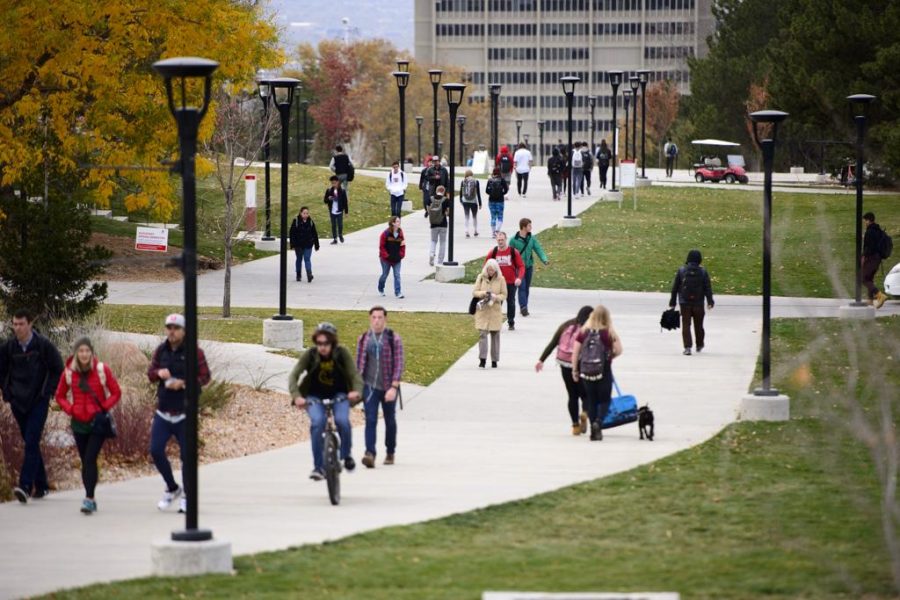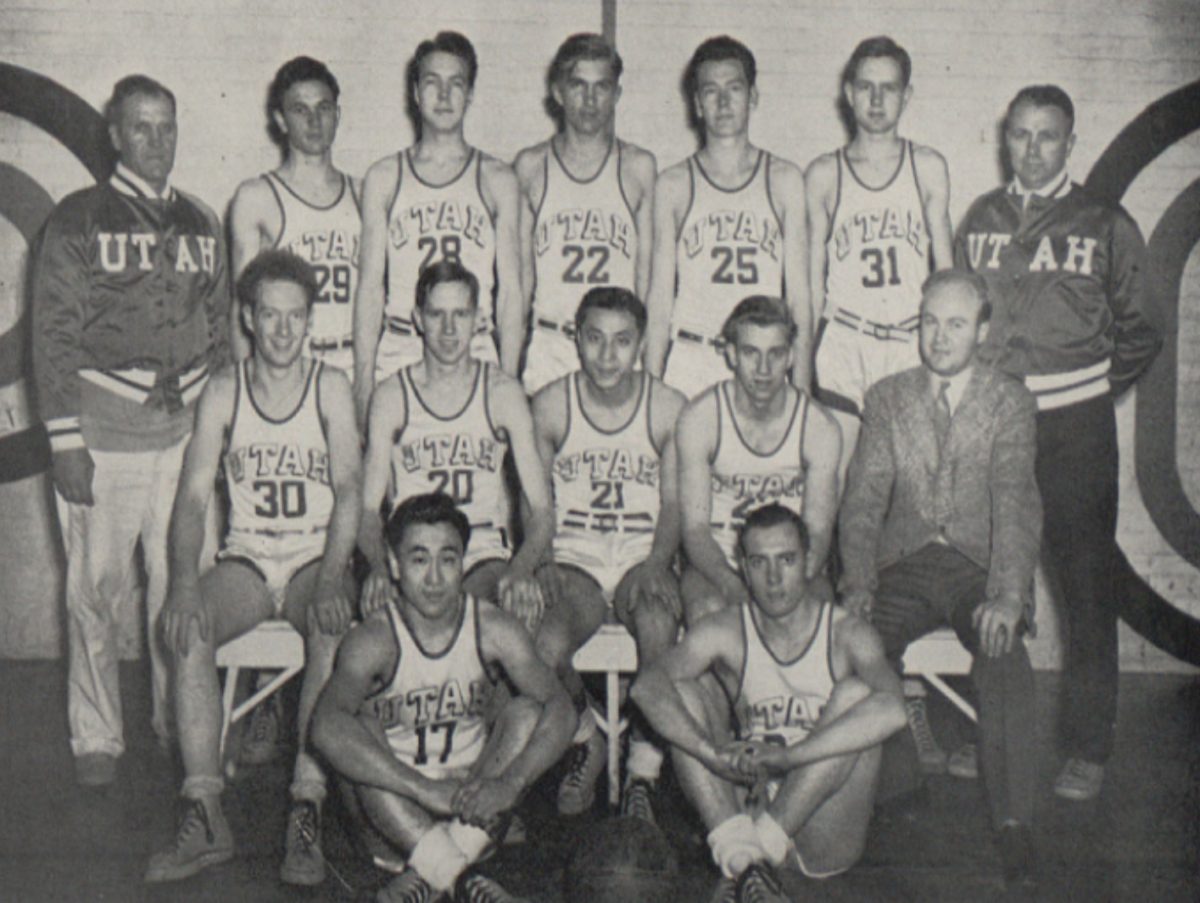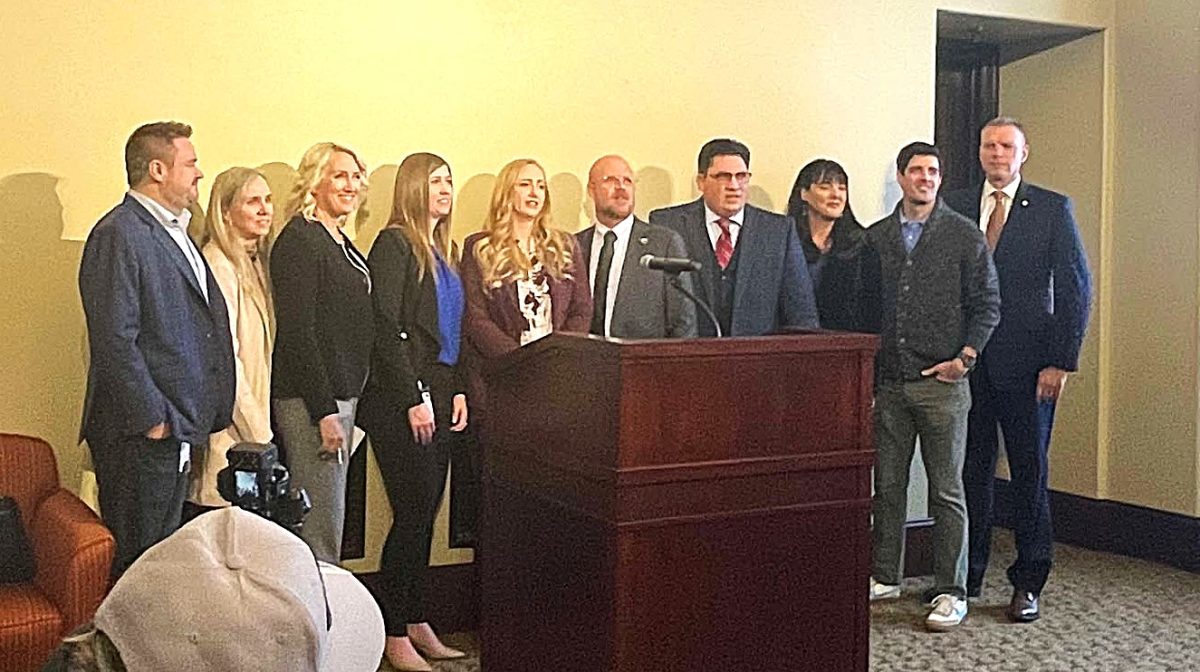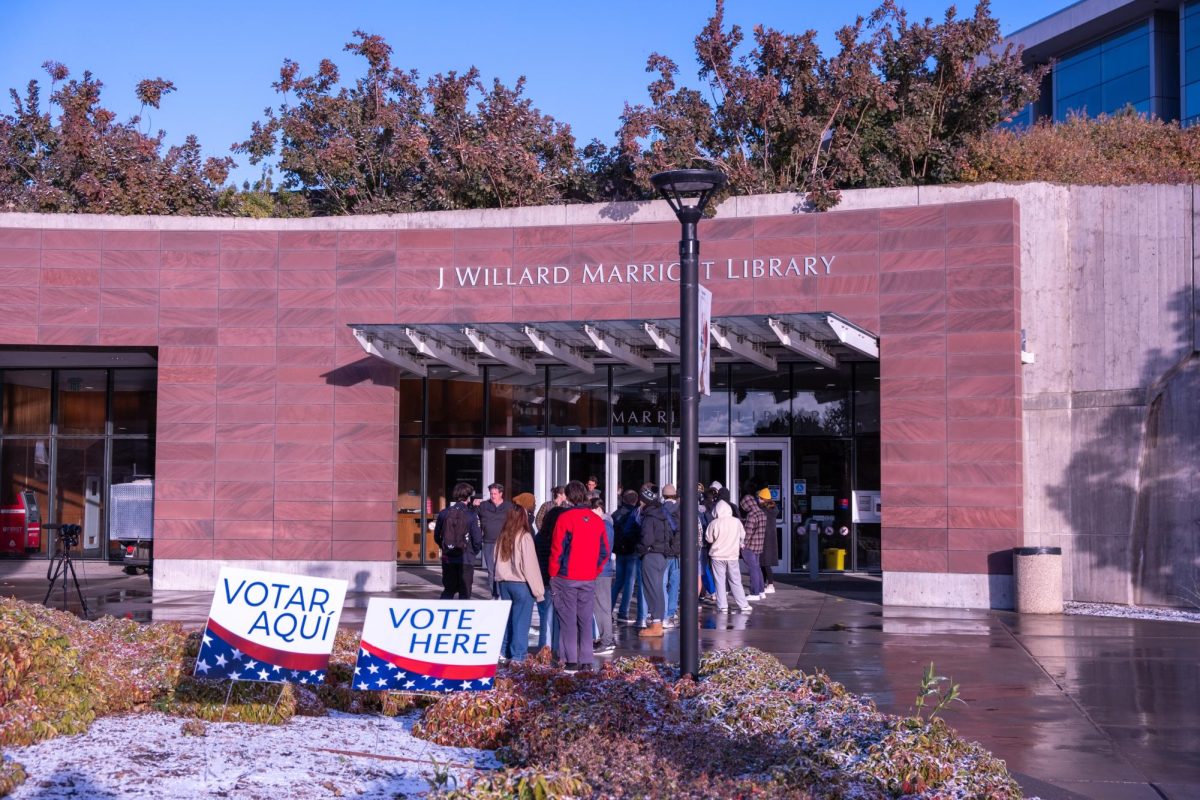Virtual Town Hall Addresses New Guidance for International Students
Students walking to and from class on campus at the University of Utah on Wednesday, November 16, 2016
July 19, 2020
On July 14, only hours after the University of Utah announced their plans to join lawsuits against the department of homeland security’s decision requiring international students with F-1 visas to take at least one in-person or hybrid course to be able to remain in the states, the mandate was resigned.
The original mandate stated if a university were to transition to completely online, the student would have to return to their home country.
This initial announcement invoked significant stress and confusion within the international student community. One student, Hyung Woo Jo, a senior from South Korea majoring in communications, explained he was worried if he had to drop certain classes to adhere to the mandate, he may have to return to the U’s Asia Campus, where these required major courses will not be offered.
“I was panicking because I have to go back to Asia campus next spring but I wasn’t a hundred percent sure if the Asian campus is going to provide it or not… I’m not sure but I had to find a solution by talking with the Asia campus about the issue. I was panicking,” Jo said.
In response to the outcry from the international student community and lawsuits filed by various universities across the country, the U issued a statement explaining they support and have signed the lawsuits against the DHS. The U also added its name as a friend of the court supporting the lawsuit filed by Harvard and MIT. Another lawsuit included 20 major universities in the western United States including the U, asking to stop ICE’s directive from being enforced.
While the original lawsuit by Harvard and MIT, which the U had signed, was being heard, the DHS came out with a new statement revoking their original mandate issued on July 6.
In a virtual town hall for international students held on Friday, July 17, President Ruth Watkins expressed her appreciation for the international student community and her approval of the decision made by the DHS to revoke their original mandate.
“We value you so much — you make the University of Utah a stronger, better institution… We applaud the decision that happened on Tuesday of this week by the U.S. Department of Homeland Security to rescind the rules that were adopted on July 6,” Watkins said.
The senior vice president of academic affairs, Daniel Reed, also expressed his support for the lawsuits that took place and the U’s role in making that happen.
“Within minutes of receiving the notice about the rule, we mobilized across campus both to start responding to your questions, but pursuing legal alternatives to addressing what we felt was an entirely inappropriate and egregious penalty to be imposed upon you. I am really gratified at our ability collectively in the country to be able to turn that back,” Reed said.
As some international students are worried about the DHS coming out with a new decision that will negatively impact them, President Watkins said the U will not hesitate to express their voice again.
“We will take action again if we need to do so. We will join with our peers and express our voice about the importance of international students and scholars at the University of Utah,” Watkins said.
After initial comments, the town hall proceeded to a group of panelists who explained the timeline of decisions made by ICE and the DHS.
Katie Carreau from the office of general counsel explained the status quo before March 2020 was international students with F-1 visas could complete a limited amount of online learning while in the states.
When the pandemic began, however, they issued new guidelines allowing students to keep their F-1 status whether inside or outside of the states, with full online learning at the U. The July 14 decision, placed the March decision back into place.
“That guidance itself said that the duration of the allowance for online education would last for the terms of this national emergency. With that understanding, the University of Utah and all other institutions of higher education went on to plan their fall learning understanding that they would have this protection for our international students,” Carreau said.
Carreau also provided some insight into the barriers created by COVID-19 in terms of travel bans and consulates being closed.
“Consulates abroad have not been operating under normal circumstances since March. Many consulates are closed, many consulates are only operating with emergency appointments. News this week says they are going to start resuming regular appointment schedules soon, but that varies by country,” Carreau said.
President Trump has also released several executive travel restrictions depending on how extreme the pandemic is in a certain country.
Carreau explained if a student is coming to the states from China, Iran or Brazil, they must first spend 14 days in a country less impacted by the pandemic in an effort to self-quarantine.
“It may be difficult to get the F-1 visas even issued if you’re in those countries, even if you have plans to travel to a third country before coming into the U.S,” Carreau said.
There are also travel restrictions in the U.K., Ireland, and the Schengen Area.
“I did see guidance yesterday from the Department of State that specifically says that F-1 students with valid visas will be able to travel directly from those countries,” Carreau said.
In regards to the concern that some students will be subject to the travel bans and thus not able to partake in the hybridized fall semester, Chelsea Wells, the director of international student and scholar services, explained the U has created some options to ensure international students are able to pursue their education with the U.
“The University of Utah is happy to announce that we do have some fully online course blocks available for freshman and continuing undergraduate students. These courses are fully online and they will be asynchronous, so you will not be experiencing any difficulties with different time zones,” Wells said.
The course blocks such as Block U and LEAP help international students fulfill some general education requirements without having to physically be on campus.
However, some students may not be able to reenter the states, and online classes may not work for them due to time zone differences or internet accessibility. In this case, Wells addressed the possibility of taking a leave of absence which would keep a student’s academic record open, but their immigration record would be closed by ISS.
Another possibility is for students who need a medically reduced course load. If they are in the states, then they can take as little as zero credits, while maintaining their F-1 status.
The town hall concluded with President Watkins stating the U is currently working with U Health to create a COVID-19 testing system to quickly identify any students living in residence halls who may be asymptomatic, but positive for the virus. International students are encouraged to follow CDC guidelines in terms of returning to campus from another country.








